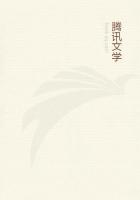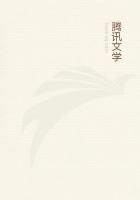Molokai -'MOLOKAI AHINA,'the 'grey,'lofty,and most desolate island -along all its northern side plunges a front of precipice into a sea of unusual profundity.This range of cliff is,from east to west,the true end and frontier of the island.Only in one spot there projects into the ocean a certain triangular and rugged down,grassy,stony,windy,and rising in the midst into a hill with a dead crater:the whole bearing to the cliff that overhangs it somewhat the same relation as a bracket to a wall.With this hint you will now be able to pick out the leper station on a map;you will be able to judge how much of Molokai is thus cut off between the surf and precipice,whether less than a half,or less than a quarter,or a fifth,or a tenth -or,say,a twentieth;and the next time you burst into print you will be in a position to share with us the issue of your calculations.
I imagine you to be one of those persons who talk with cheerfulness of that place which oxen and wain-ropes could not drag you to behold.You,who do not even know its situation on the map,probably denounce sensational deions,stretching your limbs the while in your pleasant parlour on Beretania Street.When I was pulled ashore there one early morning,there sat with me in the boat two sisters,bidding farewell (in humble imitation of Damien)to the lights and joys of human life.One of these wept silently;I could not withhold myself from joining her.Had you been there,it is my belief that nature would have triumphed even in you;and as the boat drew but a little nearer,and you beheld the stairs crowded with abominable deformations of our common manhood,and saw yourself landing in the midst of such a population as only now and then surrounds us in the horror of a nightmare -what a haggard eye you would have rolled over your reluctant shoulder towards the house on Beretania Street!Had you gone on;had you found every fourth face a blot upon the landscape;had you visited the hospital and seen the butt-ends of human beings lying there almost unrecognisable,but still breathing,still thinking,still remembering;you would have understood that life in the lazaretto is an ordeal from which the nerves of a man's spirit shrink,even as his eye quails under the brightness of the sun;you would have felt it was (even to-day)a pitiful place to visit and a hell to dwell in.It is not the fear of possible infection.That seems a little thing when compared with the pain,the pity,and the disgust of the visitor's surroundings,and the atmosphere of affliction,disease,and physical disgrace in which he breathes.I do not think I am a man more than usually timid;but I never recall the days and nights I spent upon that island promontory (eight days and seven nights),without heartfelt thankfulness that I am somewhere else.I find in my diary that I speak of my stay as a 'grinding experience':
I have once jotted in the margin,'HARROWING is the word';and when the MOKOLII bore me at last towards the outer world,I kept repeating to myself,with a new conception of their pregnancy,those ****** words of the song -''Tis the most distressful country that ever yet was seen.'
And observe:that which I saw and suffered from was a settlement purged,bettered,beautified;the new village built,the hospital and the Bishop-Home excellently arranged;the sisters,the doctor,and the missionaries,all indefatigable in their noble tasks.It was a different place when Damien came there and made his great renunciation,and slept that first night under a tree amidst his rotting brethren:alone with pestilence;and looking forward (with what courage,with what pitiful sinkings of dread,God only knows)to a lifetime of dressing sores and stumps.
You will say,perhaps,I am too sensitive,that sights as painful abound in cancer hospitals and are confronted daily by doctors and nurses.I have long learned to admire and envy the doctors and the nurses.But there is no cancer hospital so large and populous as Kalawao and Kalaupapa;and in such a matter every fresh case,like every inch of length in the pipe of an organ,deepens the note of the impression;for what daunts the onlooker is that monstrous sum of human suffering by which he stands surrounded.Lastly,no doctor or nurse is called upon to enter once for all the doors of that gehenna;they do not say farewell,they need not abandon hope,on its sad threshold;they but go for a time to their high calling,and can look forward as they go to relief,to recreation,and to rest.But Damien shut-to with his own hand the doors of his own sepulchre.
I shall now extract three passages from my diary at Kalawao.
A.'Damien is dead and already somewhat ungratefully remembered in the field of his labours and sufferings."He was a good man,but very officious,"says one.Another tells me he had fallen (as other priests so easily do)into something of the ways and habits of thought of a Kanaka;but he had the wit to recognise the fact,and the good sense to laugh at'[over]'it.A plain man it seems he was;I cannot find he was a popular.'
B.'After Ragsdale's death'[Ragsdale was a famous Luna,or overseer,of the unruly settlement]'there followed a brief term of office by Father Damien which served only to publish the weakness of that noble man.He was rough in his ways,and he had no control.Authority was relaxed;Damien's life was threatened,and he was soon eager to resign.'















